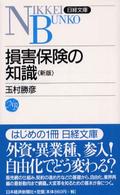- ホーム
- > 洋書
- > 英文書
- > Business / Economics
Full Description
The world of work and organization has become increasingly demanding and turbulent as firms respond to forces of globalization, the introduction of new technology, requirements to increase revenues while decreasing costs, and the needs of a more diverse workforce, while building organizational capability. Most organizations can acquire or copy technology, manufacturing processes, products and business strategies. However, human resource management practices and organizational culture are difficult to copy and represent a truly unique competitive advantage. Managers are coming to believe that the most important organizational resource is human. This collection presents research evidence and company examples developed over the past decade showing how to create organizations that add value to investors, customers and employees. It first illustrates why and how human resource management practices become a competitive advantage. These practices are also reviewed in an international context, an increasingly important reality as business become more global. Special attention is devoted to building organizational capability while simultaneously fostering employee well-being, learning and development. In addition, support for the link between human resource management practices and organizational performance is summarized using examples of effective human resource management practices. This collection lays out specific ways in which people can be mobilized to satisfy both organizational and individual needs. Cary Cooper is one of the leaders in the field of organizational psychology. This collection presents research evidence and company examples developed over the past decade showing how to create organizations that add value to investors, customers and employees. It is international in scope.
Contents
I. Human Resources as a Competitive Advantage. The Human Resources Revolution (R.J. Burke). Why Putting People First Matters. (R.J. Burke). Emerging Perspectives on the Relationship between HRM and Performance. (D. Lepak et al.). Designing Effective HRM Systems: The Issue of HRM Strategy (S. Kepes, J. Delery) II. Human Resource Management in the International Context. Human Resource Management in Europe and North America: Similarities and Differences. (B. Van Diepen, A. Van Iteron, R.A. Roe). Globalizing HRM: The Growing Revolution in Managing Employees Internationally. (P. Sparrow, C. Brewster). Developing the Global Manager. (M. Dalton). III. Human Resource Management and Employee Well-being. The Challenges of HRM in Managing Employee Stress and Improving Well-being. (C. Cooper). Human Resource Policies for Work-Personal Life Integration. (E. Demerouti). IV. Human Resource Management and Organizational Effectiveness. HRM for Team-Based Working. (M. West, L. Markiewicz, H. Shipton). Human Resource Management Practices in the Knowledge Economy: Developing Human and Social Capital. (B. Ghitulescu, C. Leana). Engagement with Work: Issues for Measurement and Intervention. (M.P. Leiter). Becoming a Talent Leader - Individual and Organizational Perspectives. (M. Mongillo). The Strategic Employee Survey. (J.W. Wiley). Developing Leaders: A Multi-Level Perspective. (T. Nielsen, T. Halfhill). Developing the Adaptive and Global Leader: HR Strategies within a Career-long Perspective. (S. Zccaro, G. Wood, J. Herman).








